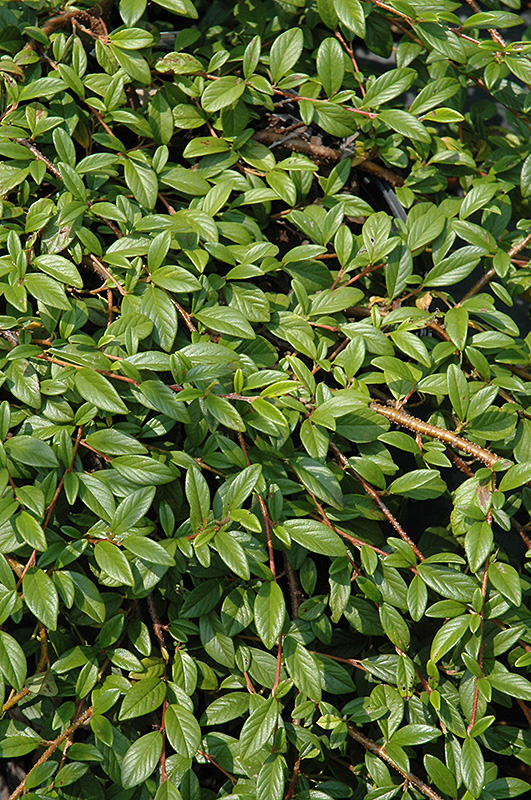Spreading Willowleaf Cotoneaster
Cotoneaster salicifolius 'Repens'
Height: 10 inches
Spread: 8 feet
Sunlight:
![]()
![]()
Hardiness Zone: 5b
Other Names: Cranberry Cotoneaster
Description:
A choice plant for massing and groundcover, featuring spreading branches that tend to root where they touch the soil and form a dense mound; white flowers in early summer followed by brilliant red fruit in fall; semi-evergreen in colder conditions
Ornamental Features
Spreading Willowleaf Cotoneaster is primarily valued in the garden for its broadly spreading habit of growth. It features tiny clusters of white flowers along the branches in early summer. It has dark green evergreen foliage. The small glossy narrow leaves turn an outstanding plum purple in the fall, which persists throughout the winter.
Landscape Attributes
Spreading Willowleaf Cotoneaster is a multi-stemmed evergreen shrub with a ground-hugging habit of growth. It lends an extremely fine and delicate texture to the landscape composition which should be used to full effect.
This shrub will require occasional maintenance and upkeep, and should not require much pruning, except when necessary, such as to remove dieback. It is a good choice for attracting birds to your yard, but is not particularly attractive to deer who tend to leave it alone in favor of tastier treats. Gardeners should be aware of the following characteristic(s) that may warrant special consideration;
- Insects
- Disease
Spreading Willowleaf Cotoneaster is recommended for the following landscape applications;
- Mass Planting
- Rock/Alpine Gardens
- General Garden Use
- Groundcover
Planting & Growing
Spreading Willowleaf Cotoneaster will grow to be about 10 inches tall at maturity, with a spread of 8 feet. It tends to fill out right to the ground and therefore doesn't necessarily require facer plants in front. It grows at a medium rate, and under ideal conditions can be expected to live for approximately 30 years.
This shrub does best in full sun to partial shade. It is very adaptable to both dry and moist growing conditions, but will not tolerate any standing water. It is not particular as to soil type or pH, and is able to handle environmental salt. It is highly tolerant of urban pollution and will even thrive in inner city environments. This is a selected variety of a species not originally from North America.

